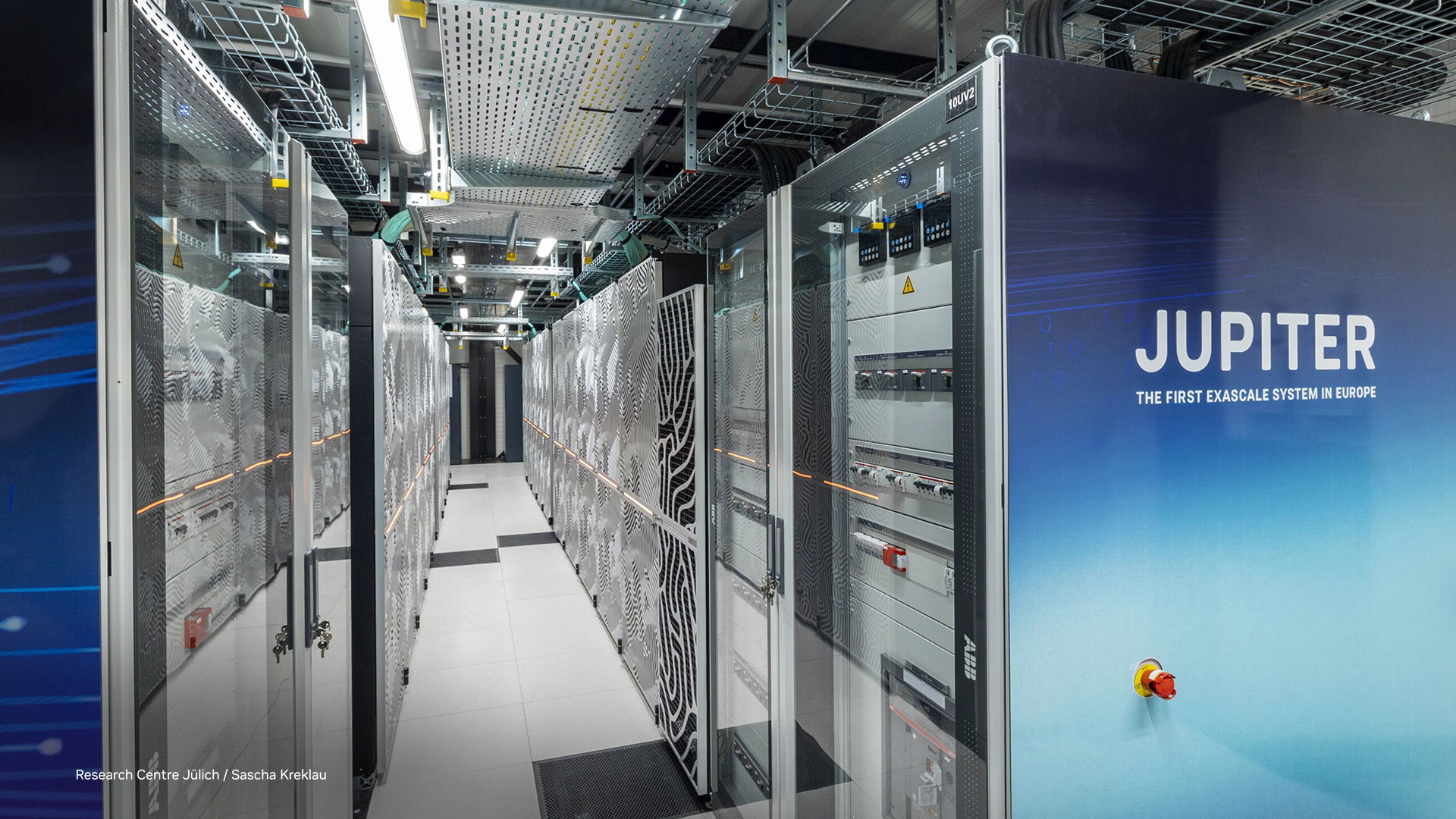Europe has officially entered the global league of high-performance computing with the inauguration of the JUPITER supercomputer at Forschungszentrum Jülich, Germany.
Launched by EU Commissioner Zaharieva and German Chancellor Friedrich Merz, JUPITER is the first European system to cross the exascale threshold – capable of performing over one quintillion (10¹⁸) operations per second.
This milestone equates to the combined power of one million modern smartphones, cementing JUPITER’s place as Europe’s most powerful supercomputer and the fourth fastest worldwide.
Henna Virkkunen, Executive Vice-President for Tech Sovereignty, Security and Democracy, highlighted the significance of the achievement: “This is a historic milestone. With JUPITER, Europe becomes the home of the fourth most powerful supercomputer in the world.
“Just as the planet Jupiter has a gravitational pull that shapes our solar system, the JUPITER supercomputer will pull Europe’s research community, its startups, its industry, and its talent together. It will attract investment, stimulate breakthroughs, and push Europe forward.”
JUPITER: Sustainability at the core
Unlike traditional high-performance machines, the JUPITER supercomputer is built with sustainability as a top priority.
Running entirely on renewable energy, the system employs advanced cooling and energy reuse technologies.
These innovations have made JUPITER the world’s most energy-efficient supercomputer module, a distinction reflected in its top ranking on the Green500 list.
Transforming science and policy
The exascale power of JUPITER is set to revolutionise European science and policymaking.
Researchers will be able to run climate and weather simulations at kilometre-scale resolution, producing more accurate forecasts for extreme events such as floods, storms, and heatwaves.
Its capacity also extends to breakthroughs in physics, medicine, and materials science, enabling discoveries that were previously out of reach.
Driving Europe’s AI future
Beyond research, JUPITER will underpin Europe’s next generation of artificial intelligence.
Its computing power is central to the AI Factory (JAIF), announced in March 2025, which will train advanced large language models (LLMs) for generative AI.
These efforts align with the EU’s broader strategy to establish AI gigafactories – large-scale, energy-efficient hubs dedicated to developing frontier AI systems.
A €500m European investment
The €500m project is a joint investment by the European Union and Germany through the EuroHPC Joint Undertaking.
EuroHPC has already backed 13 proposals to create AI Factories across the continent, with demand surging – by June 2025, 76 expressions of interest were submitted from 16 Member States.
These Gigafactories will integrate computing power, data, and talent to position Europe as a leader in AI innovation and deployment.
Ekaterina Zaharieva, Commissioner for Startups, Research and Innovation, added: “With Europe’s first exascale supercomputer, we are opening a new chapter for science, AI and innovation.
“JUPITER strengthens Europe’s digital sovereignty, accelerates discovery, and ensures that the most powerful and sustainable computing resources are available to our researchers, innovators, and industries.
Setting new supercomputing global standards
With its combination of raw performance, sustainability, and strategic integration into Europe’s AI infrastructure, the JUPITER supercomputer is more than a technological achievement – it is a symbol of Europe’s ambition to lead the world in both supercomputing and artificial intelligence.
Source link
#JUPITER #supercomputer #propels #Europe #exascale #era
